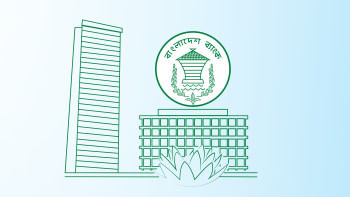Maths teaching in dismal state
Secondary level mathematics teachers in the country lack adequate teaching skills due to their poor academic qualifications in the subject.
This is greatly holding back the young learners to acquire proper knowledge on mathematics, a government report says.
The government-formed committee report reveals that a substantial number of maths teachers, who are in the profession for nearly a decade and will remain so for two more decades, took general course of only 100-marks on the subject in their secondary level education (up to SSC) -- and that is all.
“These teachers are dependent on notebooks, and follow only one method of solving mathematical problems,” said the report, adding, if anyone solves a problem going beyond that methodology, he will get zero.
This creates fear among the learners and destroys their critical and analytical thinking ability, it adds. The report was submitted to the education ministry yesterday.
"The standard of mathematics up to secondary level is poor. Moreover, there's a shortage of teachers, a majority of whom aren't much qualified," Professor Tajul Islam, who headed the committee, told The Daily Star.
In addition, most mathematics teachers remain busy taking classes at coaching centres thus spending less time in classrooms, Education Minister Nurul Islam Nahid yesterday said after receiving the report.
The government formed the 10-member committee in August last year to prepare recommendations for improving the standard of mathematics in secondary level education.
After examining the curriculum up to secondary level, the committee observed that the current maths curriculum from class I to X, introduced in 1995, is outdated. It suggested formulation of a modern, more scientific and time-befitting curriculum.
To this end, it recommended increasing the number of teachers having degrees on maths, fixing BSC (Bachelor of Science) degree with maths as the minimum qualification of the teachers and reviewing the curriculum of different countries including UK, USA, India and Canada before formulating one for the country.
The faculty of logical thinking remains undeveloped among the children, as the teachers do not consider maths as logic, said Prof Tajul.
According to the report, generally one teacher takes maths classes from class VI to X in schools. The school authorities engage teachers of other subjects for maths classes from class VI to VIII, as it is impossible for a single teacher to take all the classes.
The standard of mathematics in primary level is also far from encouraging, and average students of this level are weak in maths.
Elaborating the weaknesses of the existing curriculum, the report observes that number is very important in mathematics, but the abstract image of numbers has been presented in the textbook in such a complex way that the children find no relation with real life and lose interest in numbers.
Lack of continuity is another problem. For example, statistics has been introduced in class V but it discontinues in the next two classes and continues all over again from class VIII.
As for algebra, students start memorising formulas from class VII and VIII before learning its general concept.
"Students are compelled to memorise the algebraic formula, and most teachers think that formula is a thing to memorise, not to logically understand," said Prof Tajul Islam, also a member of the University Grants Commission.
Commenting on the report, education minister said the government will formulate a fresh mathematics syllabus in line with the recommendation of the committee in 2012.
Some other recommendations in the report include increasing trainings for the teachers, introducing creative questions in the mathematics from class VI and establishing a national academy on maths education for regular research.

 For all latest news, follow The Daily Star's Google News channel.
For all latest news, follow The Daily Star's Google News channel. 



Comments